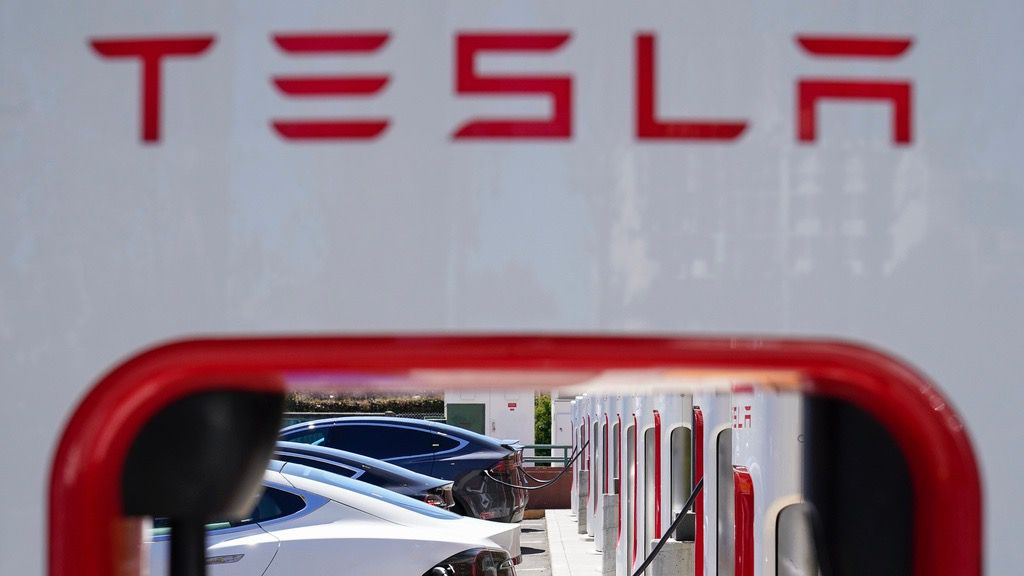As most major automakers prepare to incorporate Tesla’s charging ports into their vehicles, BP announced Thursday that it will purchase $100 million of the company’s ultra-fast chargers for its independent EV charging network.
The London-based company’s EV charging business, known as bp pulse, plans to invest $1 billion in U.S. EV charging by 2030, $500 million of which will be invested within the next three years.
BP will begin installing the Tesla chargers in 2024 at locations that are already part of its bp pulse network, including bp, Amoco, ampm, Thorntons and TravelCenters of America, as well as its Gigahub sites near major U.S. airports and cities, including Hertz rental car locations. Houston, Phoenix, Los Angeles, Chicago and Washington, D.C. will be the first cities to get the new chargers.
“Strengthening the bp pulse network with Tesla’s industry-leading hardware is a major step forward in our ambitions for high-speed, open-access charging infrastructure in the U.S. and advance our ambition to deliver an exceptional customer experience,” bp pulse Global CEO Richard Bartlett said in a statement.
Tesla ultra-fast chargers are rated at 250 kilowatts, enabling vehicles to charge from 10 to 80% in about a half hour. The chargers will be compatible with cars equipped with the North American Charging Standard and Combined Charging System connectors, allowing non-Tesla vehicles to use the bp pulse Tesla chargers.
Like the existing Supercharger network available to Tesla owners, the bp pulse network will enable vehicles to plug in and immediately charge with an automated payment system that recognizes the car and bills the associated account.
Earlier this year, several automakers struck deals with Tesla to begin using its NACS charge port and access the Supercharger network. BMW Group, Ford, General Motors, Honda, Hyundai, Jaguar Land Rover, Mercedes-Benz, Nissan, Polestar, Rivian, Toyota and Volvo have all announced plans to incorporate NACS by 2025. Stellantis and Toyota are the only remaining major automakers that have not signed on to the Tesla system that allows drivers to tap into Tesla’s global network of 50,000+ Superchargers.
“At Tesla, we’re driven to enable great charging experiences for all EV owners,” Tesla Senior Director of Charging Infrastructure Rebecca Tinucci said in a statement. The automaker’s deal with bp pulse is its first with an independent EV charging network. “Selling our fast-charging hardware is a new step for us, and one we’re looking to expand in support of our mission to accelerate the world’s transition to sustainable energy.”



